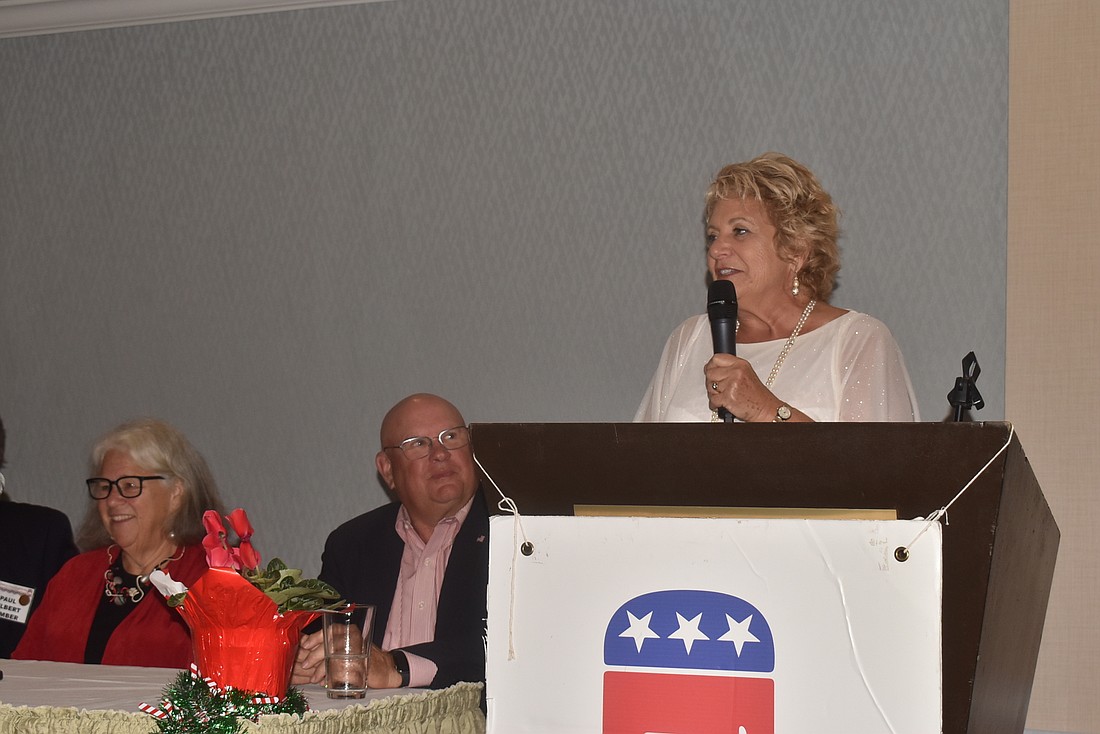- March 29, 2025
-
-
Loading

Loading

If you’d asked Bob Klosterman, a Republican, and Bob Gary, a Democrat, in early 2021 if the two political parties could meet and speak civilly, they’d have called it a miracle. But when Gary had the idea to reach out to Klosterman, they found they were both willing to come to the table.
Ten months later, eight participants from the Republican Club of Longboat Key and the Longboat Key Democratic Club have been meeting to discuss their differences and come to more understanding of each other.
“There's been dialogue, and some of that has been difficult, but for the most part, it's been respectful, and that's the key,” Gary said. “In talking with them, the most basic common ground is that we both love America, and we want what's best for the country. What we're trying to do is for the center to have a voice because there's a lot of noise, and much of it comes from the far left or the far right and not much from the middle. We're not attempting to convince the other that their policies are right or wrong. We're trying to look for those things that are important for America that we can agree on.”
From the Republican Club, there are four participants: President Scott Gray, Paul Hylbert, Klosterman and Lynn Larson. From the Democratic Club, the four are President Ed Sabol, Gary, Lucie Lapovsky and Becky van der Bogert.
Racelle Weiman, a recent area arrival and the founder of the Dialogue Institute at Temple University who has 30 years in genocide prevention, agreed to moderate the discussions. So far, she said at a Dec. 14 panel at the RCLBK meeting, she’s been impressed with what she’s seen.
“I wanted them not to do what they normally do on Longboat Key and other places, where they can go and play tennis, or have book clubs, and they refuse to talk about politics where they differ,” Weiman said. “I wanted them to actually talk about the politics where they differ and still be able to engage. That's the strength here, to have a civil conversation about places where you disagree, or where you are seeing different perspectives or are reading different news sources.”
She interviewed everyone beforehand and made sure they each really wanted to be here and agreed to take the risk. Every meeting has been in person, because it’s not really an experience that can be re-created over Zoom.
“The moderator is a very important part of the process because she keeps both sides at arm's length, and you don't risk having a bomb thrown that you can't get over,” Gary said.
At the first meeting, the two sides found a lot of common ground. At Weiman’s direction, they discussed their families and showed photos of their loved ones to get to know each other as people, and came up with priorities and qualities that are important to them. There were a few differences — Sabol mentioned that one of his Republican colleagues put down “personal responsibility,” which he came to understand after discussion — but they found that they all care about the country and what they’re leaving to their children and grandchildren.
“The heart of the problem is we tend to stereotype people and as soon as you hear, ‘Oh, he's Republican, or she's a Democrat,’ you put them into a stereotypical box and you assume that they think like AOC or they think like the Proud Boys,” Gray said. “When in fact, you throw out those far left wingers and far right wingers and we have an awful lot more in common.”
Weiman is quick to emphasize the individual human at the heart of each conversation. The goal is to inspire people in the area and around the country to take up similar tasks — the group has heard from people in Tampa and Cleveland about starting their own similar group. The urge to stereotype people came up at the panel when one Dec. 14 audience member expressed frustration that the Democrats in their former community weren’t like “these Democrats.” That’s a perfect example of the problem, Weiman said. The goal is to come at this as humans and with shared traits in mind. Longboat Key as a common denominator has helped. They better get along with each other if they live on an island together, Sabol said.
“Longboat Key is unique,” Gary said. “The number of talented, thoughtful people here who have accomplished so much in their life is astounding, so you have a very rich environment for respectful exchange of ideas and that gives us an edge. On the other hand, you don't want to say it's so unique that it can't be replicated anywhere else. ”
So far, the feedback has been positive from the clubs at large, said Gray and Sabol. They’ve both received calls and texts from random people thanking them for getting the ball rolling. Weiman commended them all for taking the risk to enter the discussions and then go public with them, knowing that there would be pushback. In the new year, they’ll start discussing more issues and potentially sending a letter to elected officials to set an example for across-the-aisle discussion.
“Moral courage is telling your buddies at the golf course what we’re doing, and getting the reaction, ‘What?’ You're talking to those guys?’” Hylbert said at the Dec. 14 panel. “Instead of vilifying and getting on the bandwagon, we say, ‘Wait a minute, we spent months working with them, and they have the same kind of aspirations that we have for a better country, for better education.’ I think one of the things that we learned is that as we move away from this panel, and talk with people in our normal lives, we have to set an example.”